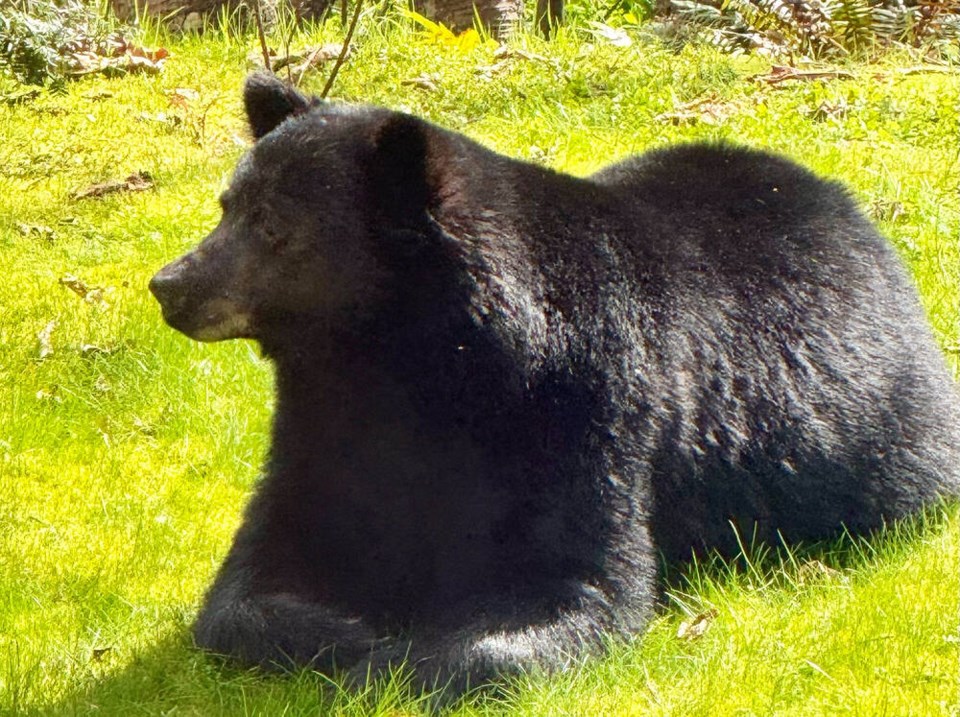The bears – including some that appear injured or gaunt – are making their way out of their forest dens and into the urban periphery, the North Shore Black Bear Society says.
Typically, the more dominant males are the first to emerge in the beginning of March. Less dominant juveniles and lone females come after, and mothers with cubs – the ones we are most likely to see – generally appear at the end of April.
“The new babies are coming out at around five to six pounds. So, really vulnerable and often they will stick closer to our urban environments just because they feel safer here,” said Black Bear Society program co-ordinator Kirstin Takashiba. “I think the most critical thing right now is really, especially with these young bears coming out, trying to let them know that our properties are not a place for them to be finding food. People really need to step up with managing attractants on their properties to ensure that the bears will go into the forest.”
Every spring, the Black Bear Society issues a fresh plea for residents to bring down their bird feeders, keep their barbecues clean, freeze organics before disposal and take garbage and compost out for collection only within the hours prescribed by their local bylaws.
They also recommend giving garbage and green waste bins a good scrub with a vinegar solution or pine-scented cleaner, as bears do not like those smells.
Black bears passing through wilderburb streets is normal on the North Shore, but the more they settle in because of easy access to non-natural food sources, the greater the risk of them following their noses to an open door or window, which can result in bears being shot, Takashiba said.
Injured bears
The Black Bear Society has been getting reports of some bears walking with limps, particularly around the neighbourhoods off Mount Seymour Parkway – most likely after being struck on the road by drivers. It can be distressing to see, Takashiba said, but the bears are best left alone.
“Bears are incredibly resilient, even if they have terrible injuries,” she said. “Really, it’s about just giving that bear space, letting them rest, keeping dogs away … not elevating those stress levels. It’s quite incredible how they can heal.”
Takashiba said they are also getting reports and photos of very thin bears – most likely young ones that experienced their first winter of denning without their mothers.
“So they probably are in that huge learning stage where they may not have put on a lot of fat over the fall as they were trying to figure things out,” she said.
They too will get the hang of finding their way to natural food sources, but only if they aren’t finding “fast food” in the yards of North Shore residents, Takashiba said.
Coyote season
Bears aren’t the only critters people should be mindful of this time of year, Takashiba added, as coyote packs are now raising pups. In an effort to keep them or their food sources safe, pack members will try to “escort” or corral people or other animals to a safe distance away. That behaviour is often misinterpreted as stalking, Takashiba said
“That usually can make people feel quite nervous, but it really is an escorting behaviour, as coyotes are very wary and very timid of people,” she said. “They’ll go back as soon as they see that you’re far enough away.”
While they are raising young, it becomes even more important to keep dogs leashed and cats indoors, Takashiba said.
[email protected]
twitter.com/brentrichter
brentrichter.bsky.social
Want to stay updated on North Vancouver and West Vancouver news? Sign up for our free daily newsletter.



